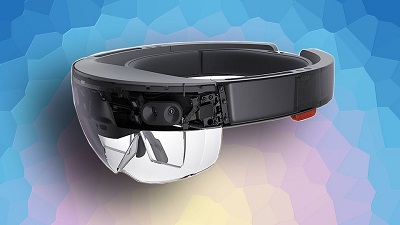For people who love using their laptops and smartphones to shop or book trips, more tools are now available.
Consumers looking to book a trip or buy something online will want to know about the latest Google shopping search tools.
The largest search engine in the world has now rolled out a range of new search features for shoppers.
The idea behind the new Google shopping search features is to allow consumers to make more informed decisions. Now, more than ever before, consumers are researching, comparing and buying products and services online. This includes the use of their mobile devices as well as laptops and desktops. In particular, research and bookings of a vacation or other form of trip.
The new Google shopping search features include filters meant to help narrow searches based on many factors.
 Among the filters are hotel ratings, price and other factors consumers may consider when planning a trip. Google explained that mobile travel and shopping searches had increased by 30 percent over the last year. This encouraged the search giant to launch a range of new features to cater to that activity.
Among the filters are hotel ratings, price and other factors consumers may consider when planning a trip. Google explained that mobile travel and shopping searches had increased by 30 percent over the last year. This encouraged the search giant to launch a range of new features to cater to that activity.
Google said “October through December are traditionally the biggest months for both travel and shopping, and this year we expect mobile to play its biggest role ever,” on its blog.
Among the newly launched Google shopping search features are:
• Hotel tips – which can assist in finding accommodations in the same way the feature already helps consumers to find flight info.
• Hotel smart filters – this allows online and mobile consumers to narrow their shopping searches by price, rating and other factors simply by tapping (or clicking) the screen.
• Price tracking for flights – airline ticket features have also been expanded. This Google shopping search option lets users track routes, dates or even a particular flight, advising of changes in price.
Beyond travel searches, Google also launched Showcase Shopping ads. With those, retailers can assemble collections of related product images. In this way, retailers can showcase more of the products they offer across a much wider category, such as “mobile accessories” or “travel essentials.”
5G may be the tech that will bring virtual reality (VR) and augmented reality (AR) to the masses.
5G mobile technology will change the entire virtual reality ecosystem according to two Chinese tech giants ZTE and Huawei Technologies. Both of these companies, which are based out of Shenzhen, are among the world’s top proponents of 5G. This next generation mobile communications technology is expected to deliver transmission speeds 100 times faster than current 4G networks. This makes it far more ideal for VR and AR, which currently lacks the technology needed to run optimally.
5G will deliver connection speeds of 1 to 10-gigabit per second and less than a millisecond of latency.
In other words, it will take less than a millisecond of time for data to get from one point to another. Presently, streaming 3D content is slow and latency is poor.
 According to Roland Sladek, Huawei vice president of international media affairs, “The virtual-reality ecosystem is not mature enough now, in terms of content and bandwidth,” Sladek added that “If you want to stream 3D content, it’s very slow. Latency is not great. That will drastically change with 5G.”
According to Roland Sladek, Huawei vice president of international media affairs, “The virtual-reality ecosystem is not mature enough now, in terms of content and bandwidth,” Sladek added that “If you want to stream 3D content, it’s very slow. Latency is not great. That will drastically change with 5G.”
Both ZTE and Huawei Technologies forecast that when 5G mobile infrastructure is widely deployed from 2020 there will be a boom in the global AR and VR markets.
The GSMA says that 5G Mobile Technology will lead to a “hyper-connected society.”
The GSM Association represents almost 800 wireless network operators and approximately 300 companies in the wider ranging mobile network, including ZTE and Huawei. The association believes that 5G will make mobile even more important than it already is to consumers and industries like virtual and augmented reality.
The association and the two Chinese network equipment and handset suppliers are not the only ones who are predicting that VR and AR will take off in the future. Earlier this year analysts from Goldman Sachs predicted that the global VR and AR market will reach $80 billion by 2025. An estimated $45 billion in sales will be generated from hardware and $35 billion from software.
Proponents of 5G mobile technology believe that the new tech will deliver a more seamless virtual and augmented reality experience that simply cannot be provided today.
 Among the filters are hotel ratings, price and other factors consumers may consider when planning a trip. Google explained that mobile travel and shopping searches had increased by 30 percent over the last year. This encouraged the search giant to launch a range of new features to cater to that activity.
Among the filters are hotel ratings, price and other factors consumers may consider when planning a trip. Google explained that mobile travel and shopping searches had increased by 30 percent over the last year. This encouraged the search giant to launch a range of new features to cater to that activity.
 According to Roland Sladek, Huawei vice president of international media affairs, “The virtual-reality ecosystem is not mature enough now, in terms of content and bandwidth,” Sladek added that “If you want to stream 3D content, it’s very slow. Latency is not great. That will drastically change with 5G.”
According to Roland Sladek, Huawei vice president of international media affairs, “The virtual-reality ecosystem is not mature enough now, in terms of content and bandwidth,” Sladek added that “If you want to stream 3D content, it’s very slow. Latency is not great. That will drastically change with 5G.”